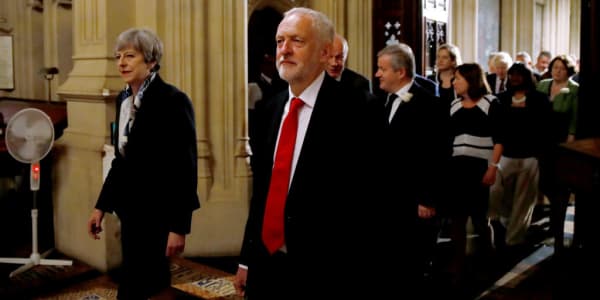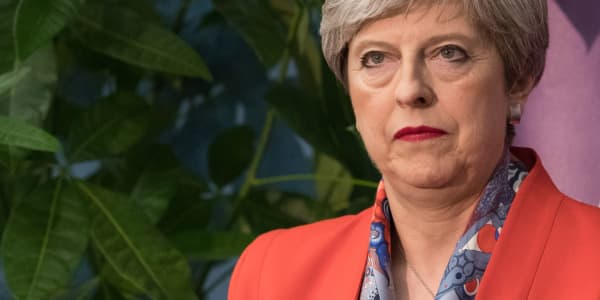Britain is preparing to face a hung parliament for just the fifth time in its political history after the ruling right-wing Conservative party failed to secure an overall majority in the General Election.
While Prime Minister Theresa May has faced calls to resign as a consequence of the inconclusive vote, the Conservative leader has sought permission from the queen in an attempt to form a new government on Friday.
What is a hung parliament?
A hung parliament occurs when no political party has been able to secure an overall majority. In the U.K., a party must secure at least 326 seats from a total of 650 in the House of Commons to form a parliamentary majority. The winning threshold is 323 in reality, as lawmakers from Northern Irish
Britain has endured hung parliaments four times with the most recent example occurring in 2010; when the Conservatives went on to form an alliance with the center-left Liberal Democrat party. It took five days in May 2010 for that coalition government to be negotiated and formed.
What happens next?
All parties have stressed that they are not keen on forming a coalition. However, multiple parties joining together to form a parliamentary majority would be the most formal and stable way for the U.K. to be governed.
The Conservatives have reportedly held talks with the DUP overnight as it became clear that the incumbents would be unable to maintain their stronghold following a surge in popularity for Labour.
Meanwhile, in the
The Conservatives had previously described the prospect of a Labour-SNP alliance as a "coalition of chaos".
Why are some investors worried about a hung parliament?
A hung parliament typically makes passing legislation an arduous process for the party in government. This is because, in theory, all other parties in the House of Commons can team up to defeat the government's proposed laws.
Investors had been especially fearful of a hung parliament ahead of the election as the U.K. is less than two weeks away from beginning formal Brexit negotiations.





